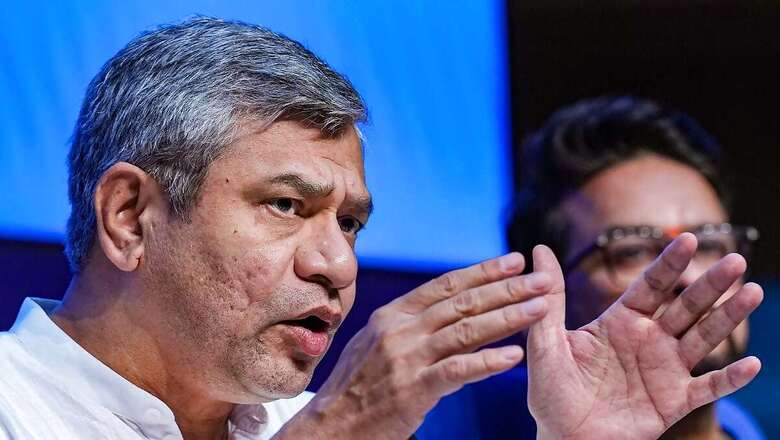
views
In a significant move to curb cyber fraud, the government on Thursday announced that buying SIM cards in bulk will be discontinued and verification for each and every SIM card dealer by licensees will be mandatory.
Union minister for communications, electronics and IT, Ashwini Vaishnaw during a press conference said, “On the occasion of World Telecom Day in May, three customer-focused reforms were released [Central Equipment Identity Register, Know Your Mobile and ASTR]. Now, in addition to that, we have decided to come up with two more reforms. These are purely focused on user protection and reducing cyber fraud cases,” he said.
Vaishnaw said since May, the government had detected and deactivated an astonishing 52 lakh connections that were fraudulently obtained. This achievement was attributed to the implementation of the ‘Sanchar Saathi’ portal, which has proven instrumental in identifying and neutralising fraudulent connections.
As part of the crackdown, a staggering 67,000 dealers complicit in facilitating these illicit connections have been blacklisted and about 300 FIRs have been lodged against those facilitating cyber fraud. The minister said the new directives, which will be implemented soon, would mandate verification and biometric authentication process for new dealers of mobile SIM cards.
According to the ministry of communications, “This new reform is being introduced to ensure the proper registration of Franchisee, Agents, and Distributors (PoS) by licensees.”
“The PoS registration process includes indisputable verification of PoS by Licensee. The process mandates a written agreement between the PoS and the Licensees. If a PoS indulges in any illegal activities, it will be terminated and blacklisted for a period of 3 years. All the existing PoS will be registered as per this process by licensees within 12 months,” it added.
Further, the practice of purchasing SIM cards in bulk has been completely terminated to stop fraudulent activities. Instead, a meticulous business connection provision will be introduced, permitting bona-fide businesses to acquire connections following rigorous verification and registration protocols.
The ministry said entities can take any number of mobile connections subject to complete KYC of all of its end-users, while the SIM will be activated only after successful KYC of end users and physical verification of the premise or address of the entity.
Further, KYC reforms state: “To prevent misuse of printed Aadhaar, the demographic details will mandatorily be captured by scanning the QR code of printed Aadhaar. In case of disconnection of a mobile number, it will not be allocated to any other new customer till the expiry of 90 days. A subscriber has to undertake complete KYC for the replacement of his SIM and there will be a bar of 24 hours on outgoing & incoming SMS facilities.”
“In addition to thumb impression and iris-based authentication in the Aadhaar e-KYC process, facial-based biometric authentication is also permitted,” the ministry noted.
To ensure that the new measures are followed, any violation of rule by the dealers would demand a hefty fine of Rs 10 lakh. The minister affirmed the commitment of the government to uphold the integrity of telecommunication networks and protect people from cybercrimes.
The minister pointed out that 17,000 illicitly obtained handsets were rendered inoperable, neutralising their potential for criminal use. Additionally, staggering 66,000 WhatsApp accounts linked to cyber fraud were blocked. Vaishnaw noted that in the case of WhatsApp, the company cooperated with the government to solve the concerned issues.
Moreover, nearly 8,00,000 payment account wallets implicated in illicit transactions were blocked, delivering a big blow to the financial underpinning of these criminal activities.
According to Vaishnaw, once the new measures are implemented across the country, the Department of Communications hopes to see the changes in 7 to 8 months in the current cyber fraud scenario.



















Comments
0 comment